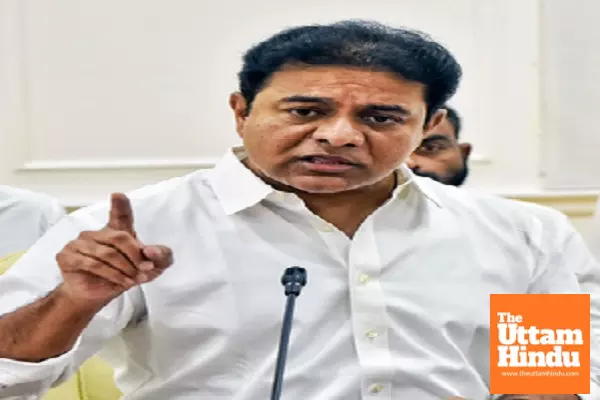
Telangana HC allows lawyer’s presence during KTR’s interrogation by ACB

Hyderabad (The Uttam Hindu): The Telangana High Court on Wednesday allowed the presence of a lawyer of Bharat Rashtra Samithi (BRS) working president K. T. Rama Rao during his questioning by the Anti-Corruption Bureau (ACB) in Formula-E race case. The court said a lawyer may be present at a visible distance from the accused during the questioning. The former minister was asked to submit the names of three lawyers. One of them would be allowed to be present during the interrogation.
KTR had filed a lunch motion petition in the High Court, seeking orders to the ACB to allow his lawyer during the questioning. During the hearing on the petition, KTR’s counsel Prabhakar Rao cited the instances where lawyers were allowed during interrogation. Arguing on behalf of ACB, Additional Advocate General T. Rajinikanth Reddy opposed KTR’s request. KTR is scheduled to appear before the ACB on Thursday, January 9. The ACB, which is probing alleged financial irregularities in the conduct of the Formula-E race in 2023 when BRS was in power, had summoned KTR on January 6.
He, however, returned from the ACB office after his lawyer was not allowed to be present during interrogation. KTR had submitted a letter to the ACB requesting it to defer his questioning till the Telangana High Court pronounces its order on his quash petition. The ACB issued another notice to him the same day, directing him to appear before it on January 9. The High Court on Tuesday dismissed KTR’s petition to quash the FIR. The court also refused to pass orders to ACB not to arrest him. The BRS working president has filed an appeal in the Supreme Court.
The ACB last month registered an FIR against KTR, Arvind Kumar, and former Chief Engineer of HMDA B. L. N. Reddy for alleged irregularities in payment by HMDA to FEO and associated entities without adhering to established financial procedures. The FIR was registered under Sections 13 (1) (A) and 13 (2) of the Prevention of Corruption Act, along with Sections 409 and 120 (B) of the Indian Penal Code.

